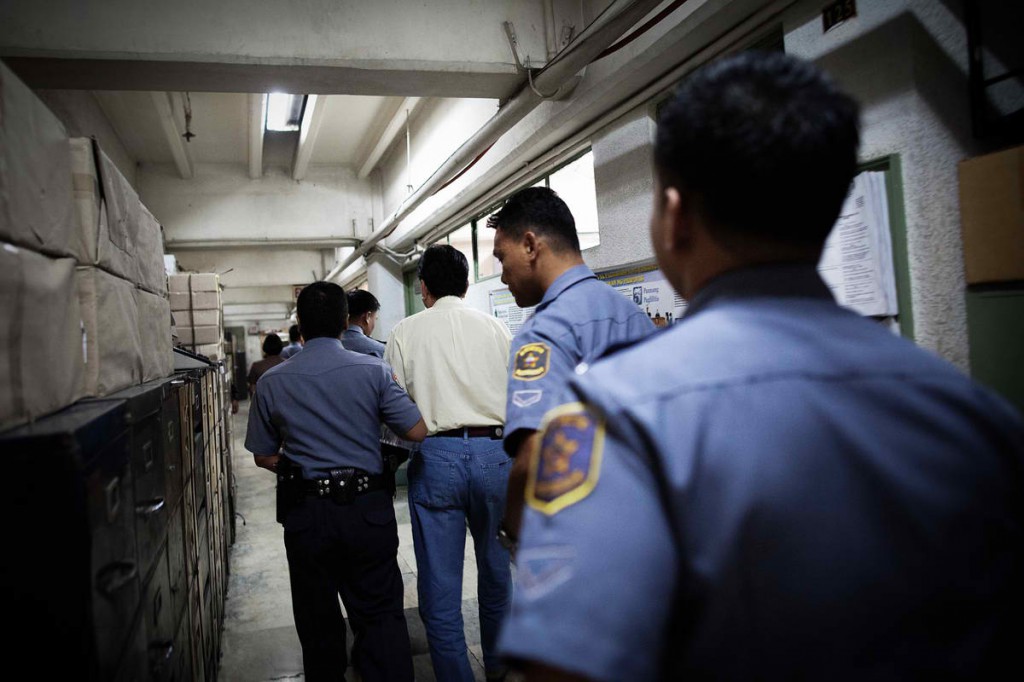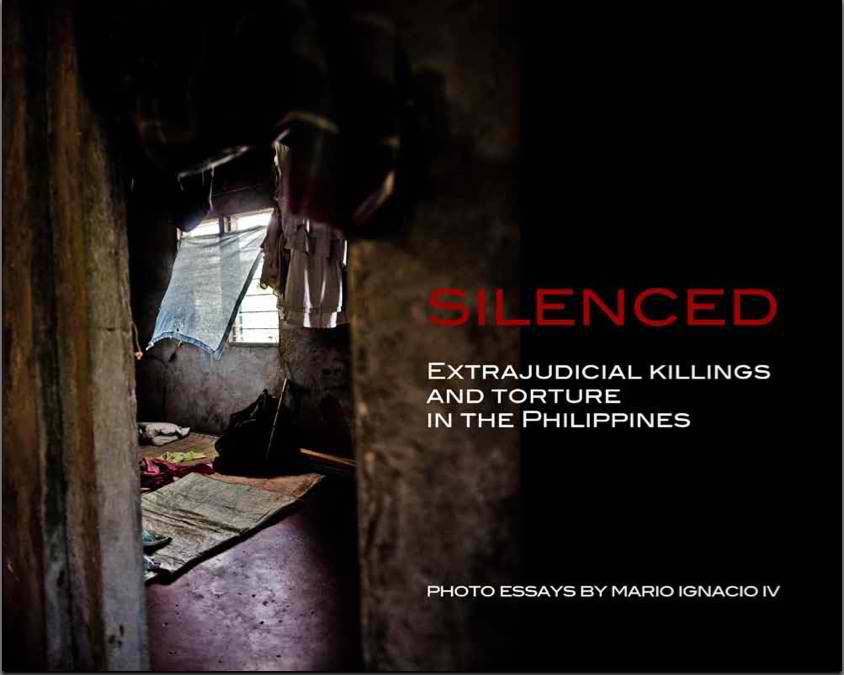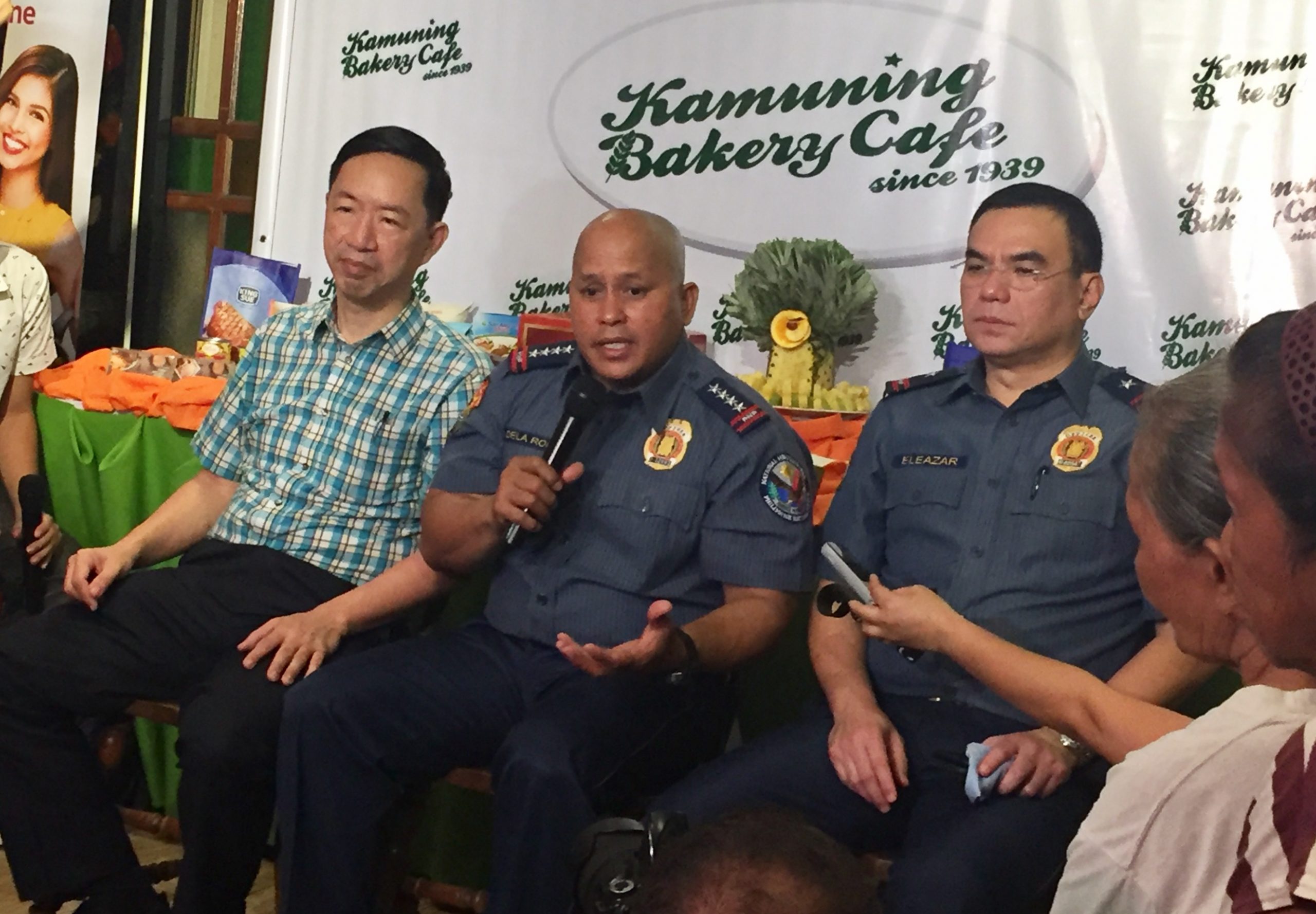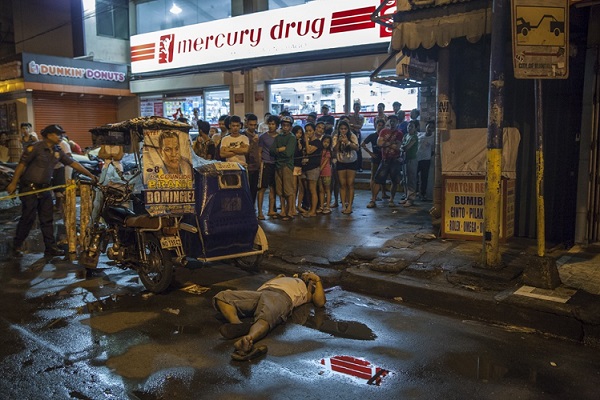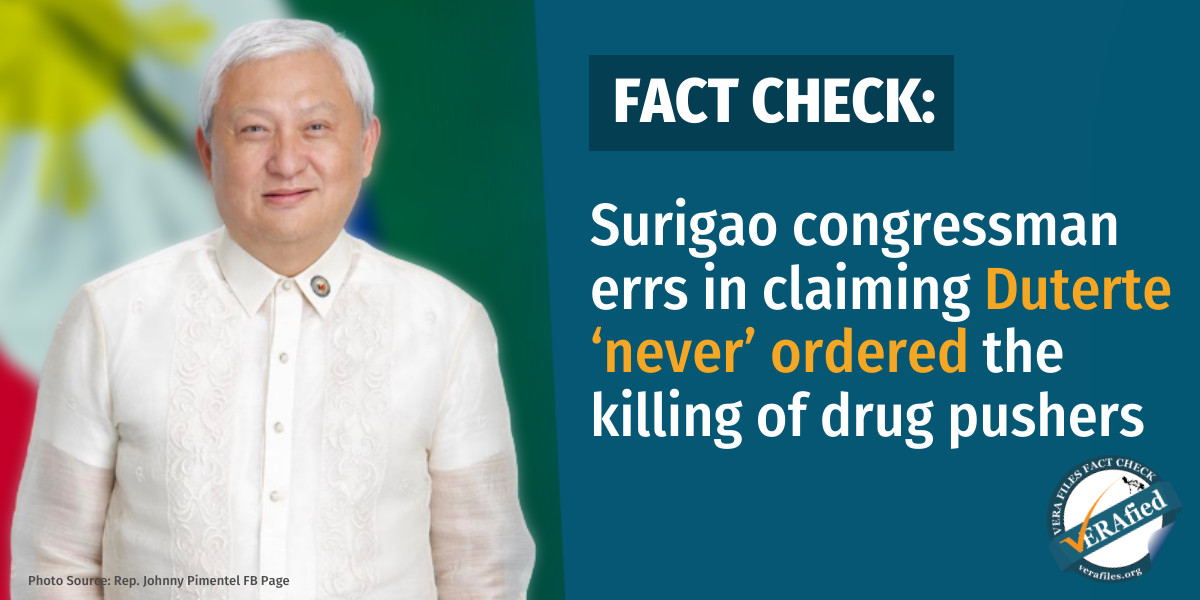By ARTHA KIRA PAREDES
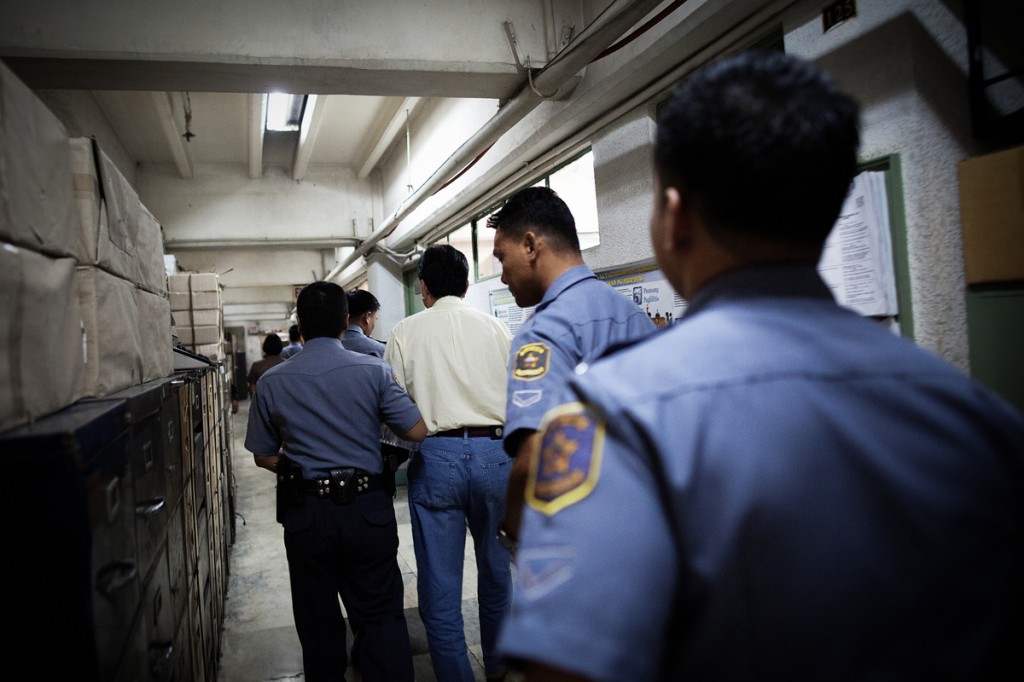
BANGUED, Abra—He spends his days in jail now, but former governor Vicente Isidro Valera once lived in a mansion on a mountaintop in Barangay Lingtan here from where he could gaze at the province of Abra, the kingdom he ruled for two decades.
The house at the zenith came to be known as “Emerald.” It had a mini zoo and a heated pool shaped like the map of Abra. But the compound also had a police checkpoint and, if rumors spread by his political foes are to be believed, hid Valera’s well-equipped arsenal.
But since his arrest in September 2009, “home” to Valera has been the Bicutan Jail in Taguig City, devoid of all the comforts he once enjoyed as Abra’s head honcho. He is facing murder charges for being the alleged brains behind the killings of his former ally and relative, Rep Luis Bersamin Jr., and Bersamin’s police security, SPO1 Adolfo Ortega, in 2006.
Normally, a criminal case lodged in court takes an average of five years, two months and 11 days before it is resolved, said human rights lawyer Al Parreno in a report on extrajudicial killings. The trial period alone takes an average of three years, seven months and 25 days.
But the Valera case is being heard with unusual speed because, among others, his is a high-profile case that some people say should exemplify that the corrupt and the powerful do get punished. Lawyers for both parties say the judge handling this case, Roslyn Rabara-Tria, is a hardworker who has kept the case moving.
But no one in Abra could have expected Valera to have fallen to such depths of disgrace. Born April 14, 1945 in Lagangilang town, he is the second of the 17 children of former governor Pepito Valera and his wife Violeta, the niece of former Justice Secretary Quintin Paredes.
Valera, who is known as Vic-Syd to his constituents, had graduated with a Bachelor of Laws from the University of the East and worked at different law offices and then as board secretary of the Philippine Tobacco Administration before 1986. He became officer-in-charge of Abra after the EDSA revolution ousted former President Ferdinand Marcos and the Marcos ally in Abra, Arturo Barbero.
‘Gov’
Valera held the post of governor from then till 1998, when he had reached the three-term limit, and ran for congress. He passed the post of governor on to his wife Ma. Zita Claustro-Valera and won it back and served as governor again from 2001 to 2007. Up to this time, allies and friends still call Valera “Gov.”
He and his family used to live at the Paredes ancestral home called the “Green House” in Zone 7 located right beside the Bersamin home. The extravagant cars and “Emerald” came later in his political career.
A former mayor and political ally who was with Valera since he first ran for governor in 1988 says that he was “okay as a leader at first.”
“It was very easy to approach him then…he (Valera) would even attend fiestas,” the former mayor said. But the longer he stayed in power, the more inaccessible he became.
It was when Valera started running unopposed that he “forgot his social and political obligations to people,” he said.
According to the former mayor whose father had also ran under the same political party as Valera’s, “power got into his (Valera’s) head and this became a problem.”

His allies were irked that they never got contracts for government projects. Completed roads funded by the municipal internal revenue allotment (IRA) were reported as provincial projects and charged to the provincial IRA, he said.
Also, “he became associated with left-leaning people,” the former mayor said, referring to other Valera allies that included then mayors and former New People’s Army members Cesar Baroña of Lacub and Mario Baawa of Malibcong.
“He didn’t like to level with other people, he always wanted to think that he was better than the rest,” the mayor explained, citing instances when Valera even slapped a Philippine National Police provincial director and a fiscal.
Powerful enemies
Valera also earned the ire of former president Gloria Macapagal Arroyo and First Gentleman Jose Miguel “Mike” Arroyo, and people in Abra speculate this marked the beginning of the end for Valera.
The rumor is that Arroyo backed Valera’s rival, Cecilia Seares-Luna, to become Abra representative, and it was she who assumed the post even if, National Movement for Free Elections sources say, it was Valera who won in the 2007 elections. Valera had also filed an election case before the Supreme Court but until the end of Luna’s term in 2010, a resolution was never released.
Syd Vasquez, former Abra board member, had experienced firsthand Valera’s temper when the latter punched him at Emerald in 1998.
That year, no less than Arroyo, a vice presidential candidate had made known to Vasquez, who was the organizer of the Kabalikat ng Malayang Pilipino (KAMPI) political party in Luzon, her request that “half the candidates run under KAMPI and the other half run under Lakas.”
But Valera disagreed and told Vasquez, “Why should she dictate when it is I who will deliver the votes?”
To further show his defiance, the former governor gatecrashed the oathtaking of new members of the KAMPI party held at the Bangued Pastoral Center where Arroyo was guest of honor, Vasquez said. What was worse was that Valera arrived drunk.
Valera’s allies deny that the 1998 gatecrashing incident ever took place, but his detractors say this did not make a good impression on Arroyo who was elected vice president that year, and then succeeded Joseph Estrada when he was ousted as president.
When Arroyo ran for reelection in 2004, she lost in Abra because Valera allegedly failed to deliver the agreed upon votes. Valera allies deny the allegation.
Another adversary Valera allies point to as responsible for the demise of his political career is former PNP Director for Intelligence (DI) Chief Superintendent Eugene Martin. It was during Martin’s term as DI chief that Valera was arrested and incarcerated.
Martin was previously Abra’s OIC police provincial director (PD) while Valera was governor. Sources say Valera relieved him from his post after he refused to cover-up a raid Valera had asked his police allies to conduct against his opponents in Tineg town.
Martin, however, said the reason they did not get along was that Valera had “no respect” for PDs assigned in Abra. “Hindi ako pumayag na tao-tauhan lang niya ako doon (I didn’t agree to being just his henchman),” Martin said.
While some Valera loyalists pinpoint Martin as one of the people to blame for his downfall, Martin says that Valera “had only himself to blame,” and it was the murder of Bersamin that “did him in.”
A series of murders
In 2005 Valera faced charges of attempted murder filed by Seares-Luna, who was the incumbent mayor of Lagayan town.
Two soldiers had executed affidavits that Valera had ordered Army Col. Noel Mislang of the 41st Infantry Brigade to send them to assassinate Luna and her sons.
Nothing has been heard since about this case which was filed at the Office of the Ombudsman. A source who was privy to the case said he could only assume that Luna never followed up on the case even if she was in the best position to do so as a congresswoman because “she had already gotten what she wanted.” The insinuation is that the charge was trumped up and was merely used as a weapon to defeat Valera.
The year 2006 started with the murder of La Paz town mayor Marc Ysrael Bernos. Although fingers were pointed at Valera, no charges were filed by Bernos’ family.
The Luna and Bernos clans were part of the group who called themselves the “opposition” to Valera’s administration. At one point, Bernos even blamed Valera for the province’s peace and order problems. Valera however was always firm in saying he had never ordered anyone killed, and that he did not come from a violent family.
That same year, Bersamin was assassinated at the Mount Carmel Church in Quezon City as he was attending the wedding of his niece, Pia, the daughter of his brother Justice Lucas Bersamin. Valera had also been invited to the event.
Even though the court case is still being heard, popular opinion has already prejudged Valera as guilty of killing Bersamin, who had openly expressed his desire to challenge Valera for the governorship.
Valera has denied allegations linking him to Bersamin’s murder and expressed a very compelling reason why he could never murder a good friend and relative in his counter affidavit.
Meanwhile, Valera is probably out of Abra’s political picture for good. His wife mounted an unsuccessful attempt to reclaim the power they once had when in her 2010 she ran for representative of Abra’s lone district.
To his allies, however, Valera is “still the best” governor Abra ever had, especially given the worsening peace and order situation in the province.
(This story is part of the VERA Files project “Human Rights Case Watch” supported by The Asia Foundation and the United States Agency for International Development.)
